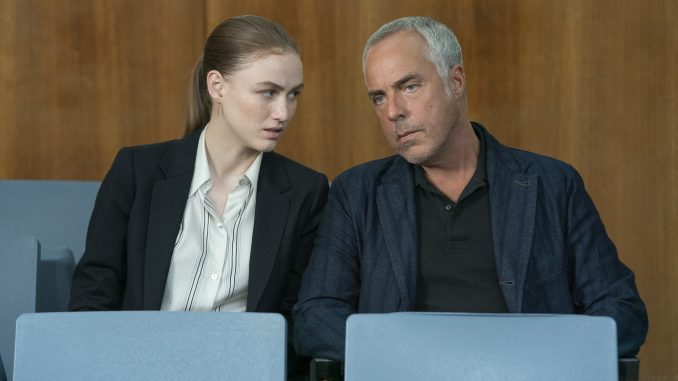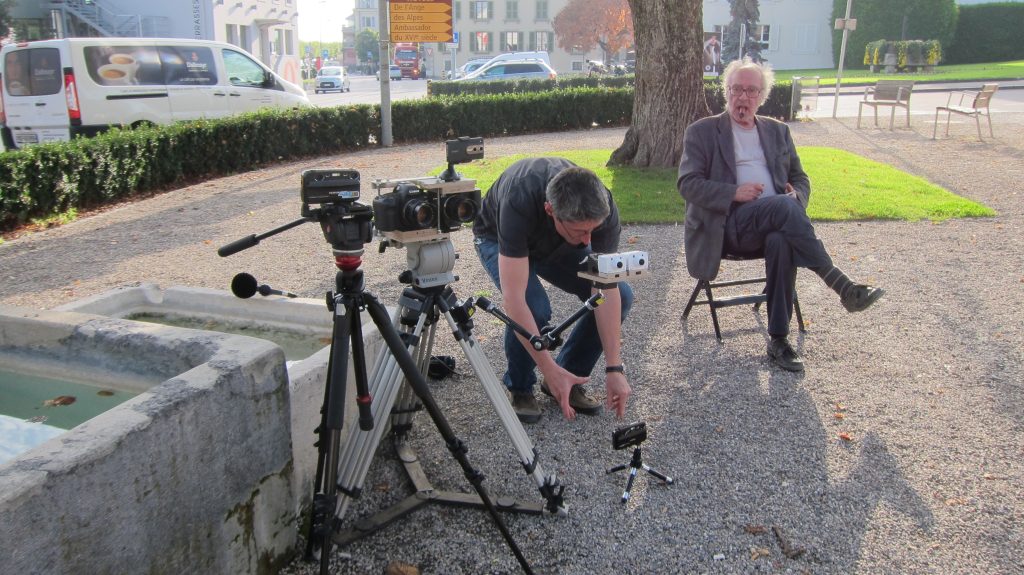
A question: The very best movies of the 21st Century, so far, are mostly TV series—The Sopranos, Deadwood, Mad Men, Breaking Bad, Top of the Lake, Longmire, Better Call Saul, Bosch, 1883, etc. Yes, no, maybe?
Maybe yes. Here at the Stream & Dream Lounge, we’ve been bingeing on the Bosch series (seven seasons, 2014-21, followed by this year’s sequel, Bosch: Legacy, on Amazon Prime). Like Longmire and the other series I’ve mentioned in these pages, the Bosch series comes across as both top flight TV and superb cinema. It’s zesty storytelling with a brashly contemporary bite to it.
The title character is Harry Bosch (given name—“Hieronymous”!), a plain clothes homicide officer in the Hollywood branch of the LAPD. He’s a smart, hard-nosed investigator with a grim backstory, a passion for controversy and a gift for solving difficult cases—all of which keeps him valued by colleagues and superiors in spite of bouts of insolence and dubious conduct.
Bosch is of course at the center of things here, but the series (based on Michael Connelly’s Bosch novels) is a multi-character affair in which Hollywood and the diverse cultures of urban Los Angeles also play starring roles. The cases Bosch and company investigate bring a wealth of themes and issues with them—broken families, gangs and cartels, racism and sexism (inside the department as well as out), immigration, legal and jurisdictional conflicts, political corruption, generation gaps, police misconduct and more.
Overall, the series is a mixture of police procedural and sly-sleuth escapade, with an intensely felt side of domestic drama. It’s a hero story in which mortal agonies haunt nearly every episode, and most of the central characters have close encounters, and worse, with mortal danger. Even as individual episodes reach satisfactory resolution, an air of tragedy hovers near the heroes of the moment, sunny urban L.A. settings notwithstanding.
As played by doughty Titus Welliver, the onscreen Harry Bosch is a physically competent but not particularly imposing figure. Much of the portrayal’s authority resides in the intensity and wariness of Welliver’s gaze—this guy Bosch is shrewd, sensitive and obsessed. In some moments of righteous fury, he flashes a hint of superhero strength, but by and large he’s the series’ prime example of divided souls in precarious positions of power and authority.
The range of such folk includes Bosch’s partner “J. Edgar” (Jamie Hector), division chief Irvin Irving (Lance Reddick), command Lt. Grace Billets (Amy Aquino), Bosch’s daughter (Madison Lintz) and ex-wife (Sarah Clarke), and Honey Chandler (Mimi Rogers), a controversy-hungry defense attorney who is both nemesis and ally to Bosch. Prominent characters in the Hollywood office include the desk sergeant and voluble sage “Mank” (Scott Klace) and the veteran partners “Crate” and “Barrell” (Troy Evans and Gregory Scott Cummins)—all of whom are major contributors to the series’ witty, allusive streak of on- the-job humor.
Secondary characters of real consequence include the CRT officer who becomes Chief Irving’s second wife (Linda Park), a federal agent (Matthew Lillard), the patrolman son of Chief Irving (Robbie Jones), a boldly forthright judge (Bess Armstrong) and culturally diverse detectives played by Paul Calderon, Jacqueline Obradors, Cynthia Kaye McWilliams, DaJuan Johnson, Daya Vaidja, Anne Wersching and Deji LaRay.
A note on Godard
Jean-Luc Godard, the French New Wave filmmaker who died last month at age 91, was a radical and prolific auteur whose long-range influence extends well beyond the dozens of provocative and innovative films he made in a career of 60-plus years.

No single Godard film provides a definitive “key” to the work of this writer, director, critic and film historian. Maybe the best starting place for absolute beginners would be a book—Richard Brody’s wonderful, jam-packed biography of the man and his work, Everything Is Cinema.
As a lifelong devotee of Godard and the French New Wave, my postmortem viewing choice was one of his last films, Goodbye to Language, a not-easily categorized 67-minute film/poem/essay/collage that is visually brilliant, delightfully unpredictable and full of intriguing questions and insights.
But, to all practical purposes, the heart of the Godardian matter is likeliest to be found in the gallery (and galleries) of his idiosyncratic breakthrough feature films of the 1960s—Breathless, A Woman Is a Woman, My Life to Live, Contempt, A Married Woman, Band of Outsiders, Pierrot le Fou, Alphaville, Masculin Féminin. View (or re-view) any four or five of those, and you just might have a good start at figuring out what Godard is all about.

Be the first to comment